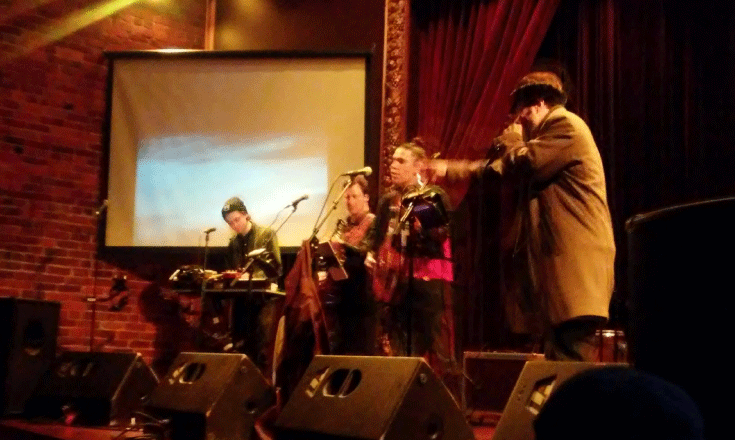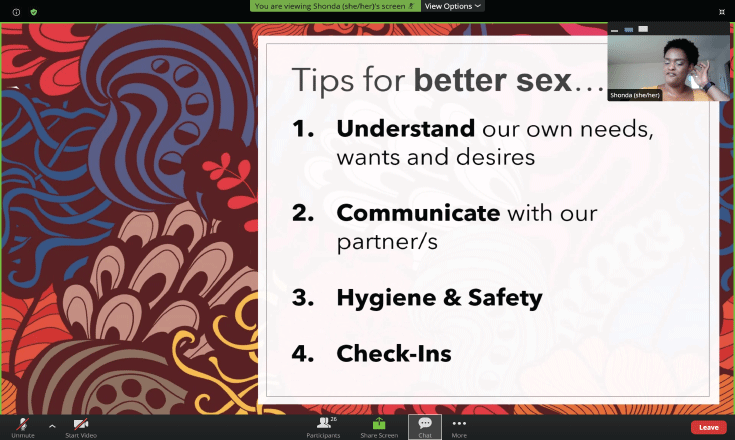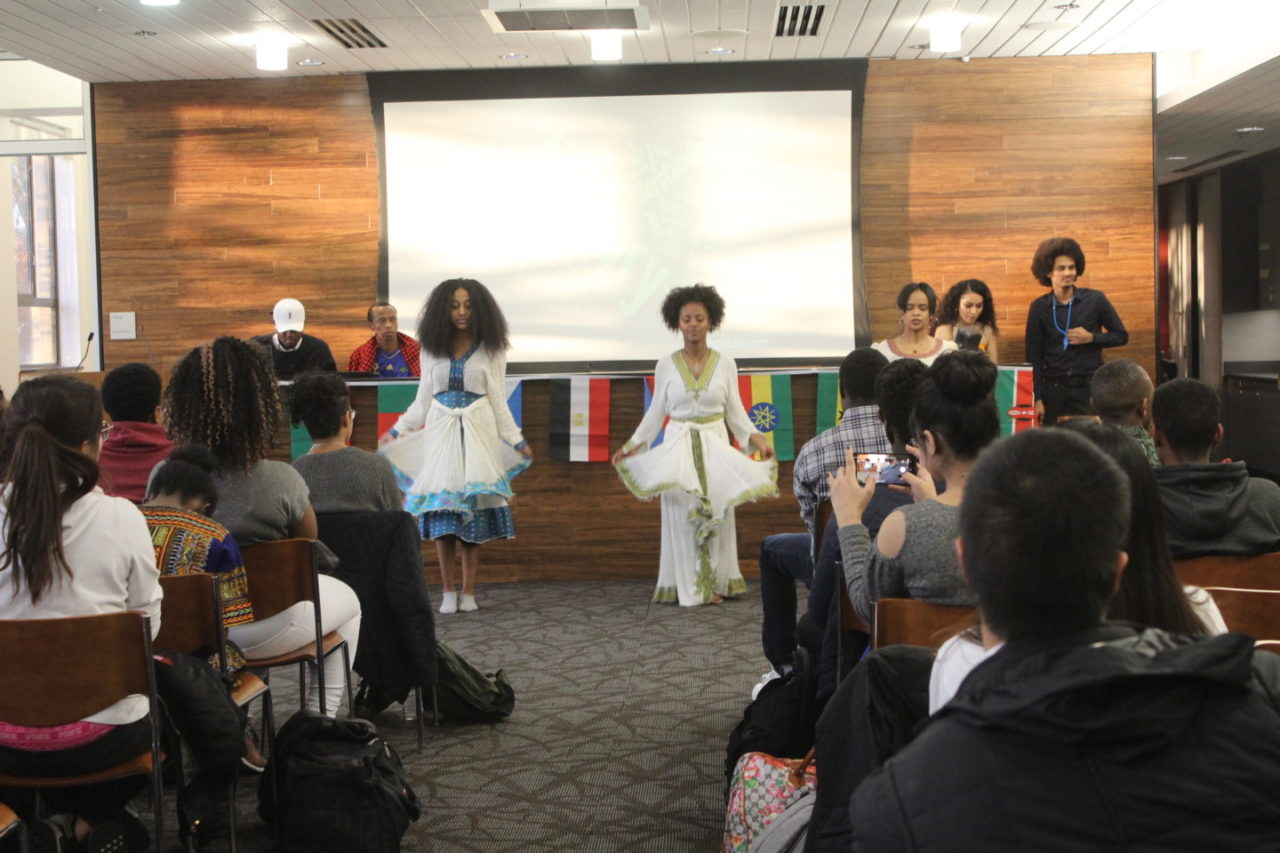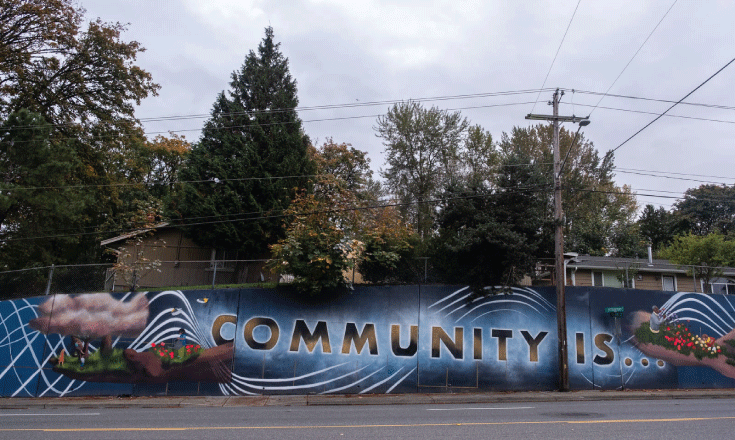Native Music Showcase
Indigenous culture is rooted firmly in traditions, land, people, song and visual art. There have been forces attempting to erase this culture, as well as wildly successful and diverse resistance to that erasure for the last 500 years. This refusal to be erased was clear at the Contemporary Native American Music Showcase presented by the Seattle Theater Group on Sunday night.
I got to the venue a little later than I’d hoped with ever present Tacoma traffic and November rain slowing me down. As I entered the Columbia City Theater, Savage Fam was about to start. The crowd was inter-generational and diverse, all eagerly anticipating what was going to prove to be a solid showcase of Native talent. From the whisperings I heard around me, some had traveled from afar to be there.
The event was presented by the Seattle Theater Group in celebration of Native American Heritage Month. There have been events all around the city honoring those that specifically called this land home before colonization and those who have been forced from their ancestral lands across the country. The three musical acts came from Alaska to the Salish Sea Area.
Often pigeonholed into narrow ideas of culture, Native musicians have to fight for recognition and space inside of predominantly white scenes or non-native culture. Something familiar to Savage Fam, the first act up for the night.
Always on point, Savage Fam, with the youngest members in tow, is a mainly hip hop crew calling the Seattle area home currently. They rap about the realities of Native life on and off the reservation and the deep need for not just change, but revolution, for their people to be truly free. “I’m here to tell the story of my people” their front man bellowed to the crowd, no mic necessary as his son performed beside him.
Before Indian Agent –a difficult to pin down 5-piece of funk and hip-hop and rock with revolutionary undertones–took the stage, Brother Smiley, a member of the Ameyaltonal, an Aztec dance group based in Amecameca, Mexico, Salem, Ore. and Skagit Valley spoke to the crowd.
He reminded all of us in the crowd, both Native and not, that “culture is not static” and what we were seeing that night was a culmination of generations of music and art and language. That the musicians and all native people are not “performing, but presenting culture” for us to partake in and it’s something we should treat with respect and not voyeurism.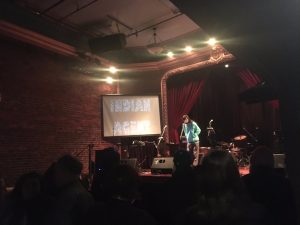
When Indian Agent took the stage it was unclear what to expect. There were drums and keyboards and guitar but a lot of reverb and modulation and synth. They sang about heartbreak, anger and gentrification, as choruses of “f*ck the police” rang out in multiple songs. All the while video clips of serene natural landscapes played on a giant screen, every once and awhile inter-cut with videos of extreme police violence and environmental degradation.
In their bio, Indian Agent says “As artists we harness the power of our blood memories to speak truth and positivity of our collective agency in radical contrast to oppression.” This harnessing was evident in their enraptured audience and unearthly vocals.
Unfortunately, this was where my night ended. After a long, tryptophan-fueled weekend, a Sunday night event past 10pm was out of the question. The band that I missed was Khu.éex, and I am sure it was quite the performance. Their roster is full of 8 musicians they perform with regularly. And according to their Facebook they are a “Native American Funk/Rock band co-founded by the late Funk legend Bernie Worrell and a group of talented musicians from the Northwest Coastal region of Washington and Alaska.” Each of their bios speaks to a deep commitment to their culture and a knowledge and respect for where they come from and those who have come before.
I’m fully aware that I missed out that night by turning into the proverbial pumpkin and heading home to catch up on homework. But we are all missing out by ignoring the deep and important cultural gifts we are presented with each time a performance like this comes through our city. Native musicians must be given the respect and admiration they deserve.
And throughout the night, their message was clear…it has been 500 years of attempted erasure of their culture, language and people, but through community action, self-defense and a fierce cultural fight against colonialism, they have not disappeared. And they will continue to create and fight for their rights.

